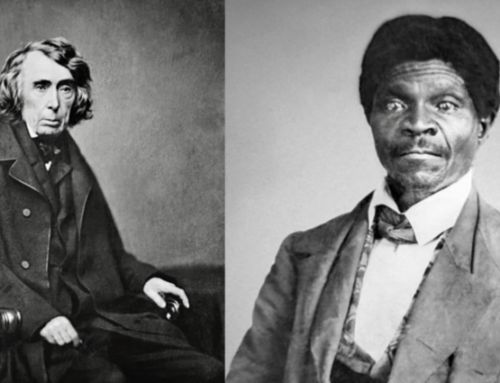 C.S. Lewis and Russell Kirk aimed at the same target when one referred to politics as the preoccupation of the quarter-educated, and the other reminded us that when we come to regard politics as the natural food of the mind rather than something we ponder only so that we are able to think of something else, it becomes a deadly disease.
C.S. Lewis and Russell Kirk aimed at the same target when one referred to politics as the preoccupation of the quarter-educated, and the other reminded us that when we come to regard politics as the natural food of the mind rather than something we ponder only so that we are able to think of something else, it becomes a deadly disease.
I mull their words often, if only because my choices and life’s circumstances have kept me working in politics for a long time. It’s not without a tinge of sadness that I ponder a harsh reality: the better part of my adult life has been consumed by those things that history’s greatest thinkers cautioned against allowing to consume one’s life.
His enthusiasm for Texas notwithstanding, I am indebted to Winston Elliott, whom I consider to be a friend even though we have never met in person. I remember when The Imaginative Conservative was just an idea. But because it was Winston’s idea, I knew it would thrive. Its pages have become a refuge for me in the darkest moments of despondency during work days. Here I can swiftly remind myself that there are more important things in life than elections, newspaper headlines, and policy debates. Here I find the permanent things.
My gratitude to Winston stems also from his allowing me to write here, where I consider myself a dwarf among giants. Most of the writers whose thoughts fill these pages come from academia, and if they don’t, they’ve nonetheless cultivated a life of the mind in ways I have neglected. “Late have I loved thee,” Augustine wrote long ago. Late have I found sanity and the truly human, I can write today.
To be sure, I learned a great deal in college. My experiences and relationships there planted the seeds that germinated ever so slowly into what has, ultimately, salvaged my humanity. But I also wasted a considerable amount of time and resources in college with the usual distractions. Graduate school was more about jumping through hoops and negotiating the terms of the indentured servitude necessary to enter the academic fiefdom. I cut my losses after a master’s degree and set myself to working in the “real world,” where the industry responsible for manufacturing and manipulating public opinion rewards people who can research and write. In short, I’m the last person who should be writing at The Imaginative Conservative. I don’t bring great academic, philosophical, or theological insights to the table. I don’t spend my days in the world of ideas. My beliefs are contradictory at times, maybe even irrational. Perhaps, though, I can bring the fruit of a certain contemplation. I think often on what it means to be a genuine conservative, as opposed to what passes for one in the wasteland of contemporary American politics. I also work in the aforementioned wasteland, so as my experiences mount I tend to reflect more on the permanent things as seen from the trenches, and vice versa.
I didn’t always look at things that way, for once upon a time I wasn’t a hired gun. Like a lot of Americans do, I once viewed politics as the most important venue for preserving what ought to be preserved and changing what needed to be changed. I ignored—or forgot—one of the most important lessons my professors tried to teach me in college: politics and law are the products of culture. You will never repair or rebuild the latter by focusing your efforts on the former two. So when I reached the point where a future in the inanities of academia seemed as enticing as an IRS audit, I was ripe for the plucking. The political machine plucked me.
And it really is a machine. However gifted a man may be in the “art of politics,” generally he won’t move above inconsequential offices without the backing of a machine. The same holds true in the legislative arena, where controversial measures pass or fail only because machinations of varying kinds and degrees of sophistication make it possible.
The machine moves money, public opinion, votes, and jobs where they need to go in order to win elections and advance legislative agendas. It does these things through a complicated network of candidates, donors, fundraisers, lawyers, savvy financiers, political and public relations consultants, political action committees, private companies, public office holders, non-profits, think tanks, party organizations, and more. The legal lines preventing some of these groups from coordinating are crossed regularly or bypassed in such a way that violates the spirit of the law. P.J. O’Rourke nailed it when he said that lawyers writing laws is like pharmaceutical companies inventing diseases. There are ways around most laws regulating political activity. Generally, money in politics is akin to water working its way downhill: one way or the other, it gets where it needs to go.
The machine’s gears reach into government, for the same reason Willie Sutton robbed banks: that’s where the real money is. Interest groups ensure that the federal and state bureaucracies sluice money to everything from corporate welfare to Medicaid and food stamps, from the “Aerospace Education Services Program” to the “Women’s Educational Equity Act Program,” and innumerable alphabet soup agencies and programs in between. One would be hard-pressed to find some aspect of life in the United States that isn’t impacted even indirectly by a government subsidy. Leviathan’s tentacles—benign as many of them might seem—reach everywhere, which is why the more sophisticated politicos have learned how to work the machine’s levers the way a master pipe organist utilizes keys, pedals, and knobs.
I cut my teeth working for the part of the machine that influences public opinion and gives lobbyists some of the leverage they need to steer the course of events in capitol buildings. We were very good at keeping certain issues and talking points alive in the press, using hard-won credibility to influence newspaper editorials and prime-time news shows, and making it as difficult as possible for reporters to ignore certain aspects of policy debates. The hype around the purported demise of traditional media reminds me of Michael Corleone’s quip about Hyman Roth—he’s been dying of the same heart attack for 20 years. Most Americans still rely on newspapers, television, and radio for their information. Influence all of that and you’ll influence them. We were good at it.
Thanks to our tax status we were able to conceal the names of most of our donors, who received a splendid tax deduction when they contributed to the organization. While our tax status meant we could only use a fraction of our resources for direct lobbying, creative bookkeeping poked plenty of holes in that dike. What lobbying couldn’t make it through those holes was carried out under the guise of providing “research and information,” appended with the obligatory fine-print caveat that “nothing here shall be construed as an attempt to aid or hinder the passage of any bill before the legislature.” It’s hard to tell a legislator you’re neutral on a bill when you’re handing him a white paper or giving committee testimony designed to kill it. One more area where we excelled.
Our issue portfolio eschewed what one board member referred to as “all that religious crap,” by which he meant such peripheral issues as a person’s right not to be dismembered in the womb, or the definition of human relationships pre-dating civilization itself. Delving into those issues jeopardized the electoral coalition necessary to advance the most crucial rights of all: financial gain and a hyper-atomized individualism.
Avowedly non-partisan, like the vast majority of its counterparts across the country, most of the organization’s positions aligned with the agenda of a particular political party. That was the elephant in the room (literally) during any discussion about the organization’s professed goal that it be guided by principles rather than politics. The principles, however, proved an easily punctured veneer when political advantage or fundraising demanded it. It happened on a regular basis.
I recall one occasion when the legislature considered some significant adjustments to the way a segment of public employees obtain health benefits. The proposal would have saved taxpayers money and maintained quality benefits for these employees. Had we followed our principles, we would have supported the change. The problem was that the state’s largest insurance company, which happened to be a major donor, stood to lose a sweetheart deal worth tens of millions of dollars annually and a relative monopoly on that segment of the market. After some conversations between our top leadership and the insurance company’s executives, we announced our opposition to the proposal. We cranked out an assemblage of talking points masquerading as serious analysis and began our usual push in the media. The proposal died eventually.
Without skipping a beat, we continued to insist to our critics that the corporations funding us couldn’t purchase specific results. I peddled that lie to the media so often that I almost started to believe it. Almost. What troubled me most was that many in the organization did believe it. They had gone through whatever mental gymnastics were necessary to square the event with the talking point.
Over time, I noticed subtle changes in the organization’s work. The “research studies” got shorter in length and less detailed. The number of footnotes and data tables steadily decreased. We focused less on producing turnkey policy for legislators and more on talking points and sound bites for use in floor debates and in the press. The conferences we attended became more about politicking and messaging and less about actual policy (as if a gathering of several hundred policy wonks and public relations hacks weren’t sufficiently insufferable). It was part of the drive toward relevance, when in reality legislators sorely needed actual policy. Few endeavors are as futile as giving a good idea to legislators, staff, and code revisers in the hope they will gin it into a good bill. But actual solutions took a backseat to politics and fundraising.
I wish I could say that what alcoholics refer to as the moment of clarity was in fact a moment. Instead, it was the slow realization that I needed to leave. I wasn’t a true believer anymore. I had grown so very weary of the endless sniping, vitriol, and shouting-past-each-other that masqueraded as discourse in the public square. I no longer felt convicted that shackling the state and unbinding the so-called free market were the answers to Western Civilization’s woes. I no longer believed that public policy was as simple as the talking points we proffered as “analysis” and “solutions.” I began to remember one of the cardinal lessons from my education: politics is the product of culture, not vice-versa. I began to see contemporary American politics for what it is: a binary language of false choices. To be relevant, you must accept the warped definitions of those choices as determined by the ruling elites and professional commentariat. In the system, you’re either a liberal or conservative, a Democrat or a Republican, a socialist or a free-marketer. If you don’t believe in corporations having their way under all circumstances, then you’re a Marxist. If you speak up for conservation you’re a radical anti-human environmentalist. The list goes on, ad nauseam.
Still, self-interest is a powerful thing. I looked at my paycheck, benefits, and comfortable niche I had carved for myself and compared it to the alternatives, which were rather depressing. The reality was I had been in the game too long to start over without serious consequences. I wanted out but I had become a hired gun, and I came to understand what every hired gun learns eventually: you don’t shoot the pilot until you find the parachute.
Eventually I found the parachute, but that’s a story for another day. Spring is here now. The hills are greening, the birds are filling the day with the most beautiful music ever made, my wife is eying the garden plot, my baby daughter is old enough to begin enjoying the natural world created for her, and projects await me on house and land. Sometimes those are the most delightful and truly permanent things.
Books on the topics in this essay may be found in The Imaginative Conservative Bookstore.







To J. P. Thomas – I so appreciate your comments and look forward to your next article. I can understand, because I studied under Willmoore Kendall – at Georgetown University the one semester he was there after he left Yale (1962) where he had taught William F. Buckley. In that course on The Federalist Papers – he converted me from liberalism with his great teaching on the founders and John Courtney Murray’s We Hold These Truths. Some years later I was at a
think tank in the early years when Reagan was President. I began to see the disconnect – and the way that politics “full time” as you describe it, can have a kind of built in tendency to elevate the ego and personal power and diminish the higher purpose to inspire teamwork for the common good.. I had the privilege in that era to know Russell Kirk as a friend, although not well. I do know that he was worried about this corrosive tendency he was witnessing even in the midst of the great victory of the Reagan presidency. Later I witnessed first hand the corrosive effects of government power combined with “doing good” in the field of abstinence education under the 1996 Welfare Reform legislation. A lot of good was done of course – under both Clinton and Bush,, but at the same time, huge disconnects caused many to look the other way… including the ill advised move to measure teens sexual behavior change by asking kids in these programs invasive questions. It is hard to witness government funds and power become more dominant over the original and workable principles of great conservative thinkers like Willmoore Kendall and Russell Kirk. Thank you, Mr. Thomas, for your candid narrative – it may help to get things righter than they have often been when money and materialism become dominant in the political quarters of the conservative movement.
Dear Mr. Thomas: G. K Chesterton thought the most glorious sight is a man on a white horse,; check out his poem ‘ Ballad of the White Horse ‘. Is it any wonder, then, that, right after Reagan was elected, British paper [s] on the front page showed Reagan on a galloping white stallion, six guns drawed, big smile on his face. A rather sobering picture to the gulag think tank. I’ll know American politics has matured when someone with a wart hanging somewhere off the nose is elected President, obviously not by appearance, but by the content of the wisely spoken word.